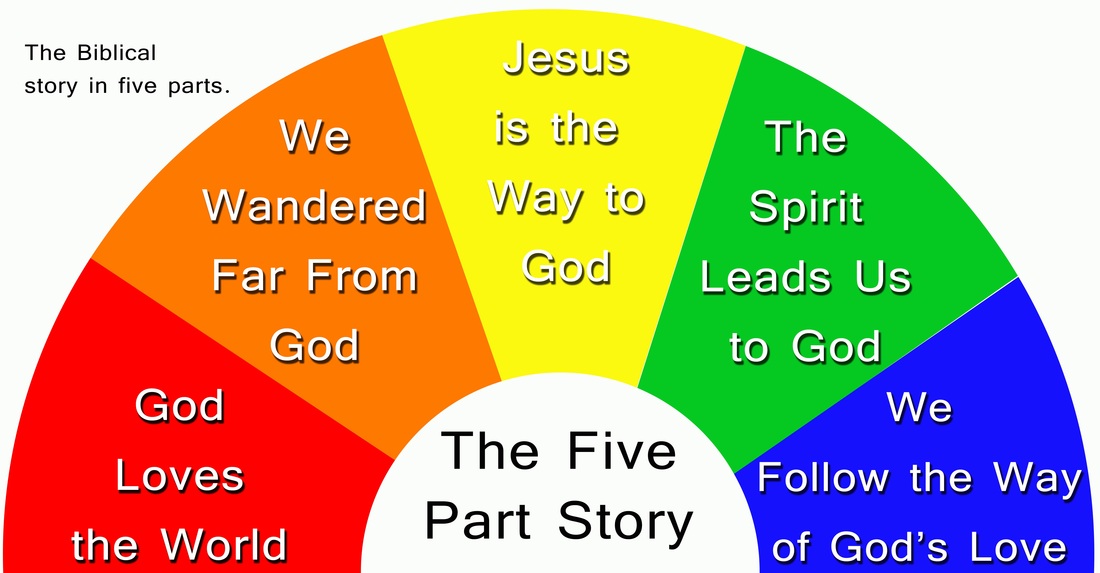First, I know the idea of me dancing is, for many of you, laughable. Try to put that behind you – I’m being metaphorical. My original title for this entry was “How Paul Screwed up Everything Jesus Said and Did”, but several wise voices (including that still, small one inside) told me to stop and think a little more deeply before starting.
My brother advised me to carefully avoid two certain heresies:
- Don’t try to say some scripture is “more inspired” than others, and
- Don’t fall into the overly common belief that Jesus never claimed that he was God.
I thank all of those voices, and I hope I do them justice with this entry. which is now more accurately about “How the early Church messed up the Gospel, and in doing so, marginalized much of what Jesus said and Did”. Not quite as much the “grabber” as the other, but more accurate.
Still think I’m being harsh? Let’s take a look at the first section of the Apostles’ Creed:
I believe in God, the Father Almighty,
creator of heaven and earth.
I believe in Jesus Christ, his only Son, our Lord,
who was conceived by the Holy Spirit,
born of the Virgin Mary,

suffered under Pontius Pilate,
was crucified, died, and was buried;
he descended to the dead.
On the third day he rose again;
he ascended into heaven,
is seated at the right hand of the Father,
and will come again to judge the living and the dead.
Notice any gaps there? What exactly happens between “born of the Virgin Mary” and “suffered under Pontius Pilate”?
The first mention we see of the Apostles’ Creed is 390 AD (shortly after Christianity was proclaimed the state religion of the Roman empire), which means at a very early stage in Church history, the words and actions of Jesus were already of less importance than much of Paul’s writings, who (with some exceptions) spends most of his time developing a crucicentric Christology, ecclesiology, and (let’s not forget) hamartiology. In layman’s terms (I just heard most of you say “huh?”) Paul’s focus on Jesus is primarily about the cross (Jesus’ death), its function in divine reconciliation (Christ’s death puts us in right relationship with God), how the church should operate (because the early congregations SUCKED at it – and not much has changed in 2,000 years, by the way), and how exactly we should define and “manage” sin in the world and in our lives.
As theologian N.T. Wright puts it in his book “How God Became King: The Forgotten Story of the Gospels,” he suggests that for centuries the church has been “misdirected” by failing to pay attention to the “middle bits” that the creed leaves out.
I’m not a theologian nor an historian, so I won’t try to speculate as to why, when the canon of scripture was “complete”, the church’s focus seemed to be nearly everyplace except on the words and actions of Jesus himself. It’s just a hunch, but I suspect it has something to do with power and control (oops, I speculated). Still, if we accept Paul’s assertion that Jesus was God incarnate (and the very definition of Christianity demands that we do), then doesn’t it follow that our best example of the “Christian life” is in Christ himself?
Oddly enough, even with our apparent general disinterest in “The Gospels” as they pertain to being “Christlike”, the Church is still rife with language like “sharing the gospel” while living lives that look very unlike the life Jesus lived. Frankly, I’m surprised I missed it for so many years, and I remain surprised at the resistance when I try to suggest to my well-meaning Christian friends that we move from a “gospel” primarily about “saving souls” and “getting to heaven” toward a Christian worldview that is more about blessing the world with the blessings we ourselves have received.
In fourth grade, our church takes that age group through a “Walk Through the Bible” activity and they receive their first Bibles from the church. I started writing this entry the afternoon after my son’s first class of “walking”, and that’s been a year ago or more. That’s how difficult I have found it to challenge so much of my Christian upbringing. In the end, however, I think we make it so much more complicated than necessary. It’s really easy enough to explain to a fourth grader. The overall “story” of the Bible (which is how I believe we can best read and understand the Bible) is five-fold. Rather than try to repackage what has already been nicely done by our pastoral and Christian ed staff, I’ll just direct you to the church’s webpage if you want the full picture. In short:

And yeah, I really think it’s that easy, whether you’re a third-grader or an octagenarian: If the Spirit has led us to God and we bear the label of “Christian”, our daily task is to follow the way of God’s love. And where do we look to best see what the “way of God’s love” looks most like on earth? If you said, “Jesus”, we’re on the same page.

Leave a comment